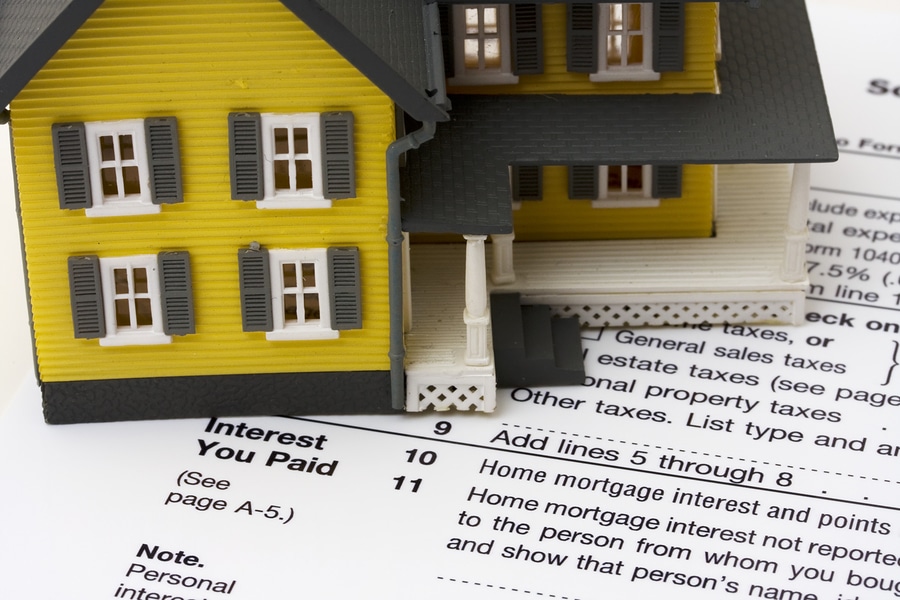Property taxes in Atlanta and Decatur have become a real point of contention in recent years. There are other considerations when purchasing a home that I’ve written about here and here, but sharply rising home prices make understanding property taxes and the associated homestead exemptions and appeals process ever more important. I’ll cover the details below, and start with an overview of how property taxes are calculated.
The first step in calculating property tax is to estimate the value of your home. For both Decatur and Atlanta, the job of appraising the value falls to the county Board of Assessors If you believe the appraised value is incorrect – regardless of whether the home is an investment property or your primary residence – you can file an appeal. The process for Dekalb County is outlined here, while the Fulton county process is here. Note that your right to appeal is time-limited, and while your appeal is pending the county will assign a temporary billing value if taxes are due.
If you plan on appealing your property tax, you’ll need to provide data to show why you believe the appraised value is incorrect. One valid reason is that the data the appraiser used was wrong – for example, the appraisal might have assumed more square footage than you actually have or too many bedrooms or something similar. Another common reason could be that the appraisal was too high for the area in which you live, and to make that case, you’ll need to find a list of comparable homes with lower values. You can find more information on that process here, but if the process is too onerous but you still want to file an appeal, there are professionals who will file an appeal and then split any savings with you. A successful appeal will result in your property value being frozen at the lower value for three years, after which point your property will be appraised again.
A successful appeal isn’t the only way to lower your property tax bill. Homestead exemptions also result in a lower bill, and to understand homestead exemptions, it’s useful to review how property tax is calculated. Here are a couple of key concepts in the calculation:
Millage Rate – a mill is a tax liability of one dollar per thousand dollars of assessed value. So, if the assessed value of your home is $300,000, and the total tax rate is 30 mills, then your property tax bill will be $9,000.
To calculate the millage rate, municipalities and counties determine what expenses they need to cover – what should be set aside for the cost of running things, how much should go to schools, how much should cover bond interest and so on. The amounts to cover in each category are totaled, and (in overly simplified terms) divided by the total value of the property digest to determine the millage rate for each category. Those rates are then summed to arrive at your total millage rate. For a rundown of what taxes cover and the rates themselves, see the following:
Decatur Property Tax millage rate explanation
City of Atlanta Property Tax millage rate explanation
City of Atlanta Proposed 2019 millage rates
Dekalb County Property Tax millage rate detail
Assessed Value – the assessed value of your home is the amount used (before any exemptions are applied) to calculate your property tax. The assessed value is typically not the appraised value, but rather some percentage of the estimated value. The City of Decatur uses 50% of the appraised value to derive the assessed value, while Atlanta, Dekalb and Fulton counties all use 40% of the value.
Homestead Exemptions – homestead exemptions are tax breaks that are meant to lower property taxes. One primary motivation for homestead exemptions is to reduce the likelihood that rising home values – and taxes – force residents out of their homes. Both Decatur and Atlanta offer a homestead exemption for anyone who owns a property in which they live. The exemption works by reducing the assessed value of the home for some property tax items, and you can apply for it at this link for Decatur, here for Dekalb County and instructions are here for Atlanta Fulton County.
Beyond the standard exemption, there are myriad age and income-based options. In 2017, Decatur passed an exemption for anyone 65 or older that removed school tax from the property tax bill if a person owned and lived in a home in the City of Decatur. While Atlanta doesn’t apply a full exemption from school taxes for those 65 or over, they do have an increased homestead exemption. For a list of homestead exemptions, look here for Decatur, here for Atlanta and Fulton County and here for Dekalb County. Based on our experience, we would recommend the following steps if you’re applying for a homestead exemption beyond the standard exemption:
- If you’re not sure which exemptions might apply to you, call or visit the tax office and they can assist you.
- If you are applying for an age or income-based homestead exemption, don’t assume that the city will communicate with the county or vice-versa. It may be necessary to apply for an exemption with both the city and the county.
- If you need to appear in person to apply for the exemption, make sure you have all necessary documents to save yourself an extra trip.
While you’ll likely never completely eliminate property taxes in Atlanta and Decatur, keeping an eye on the appraised value and applying for applicable homestead exemptions will ensure that you aren’t paying more than you need to.



